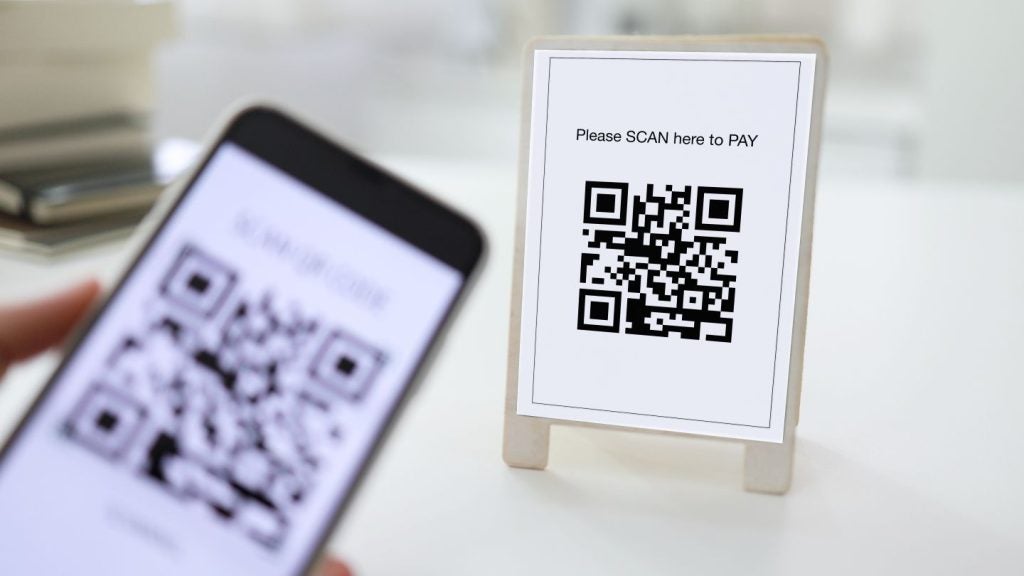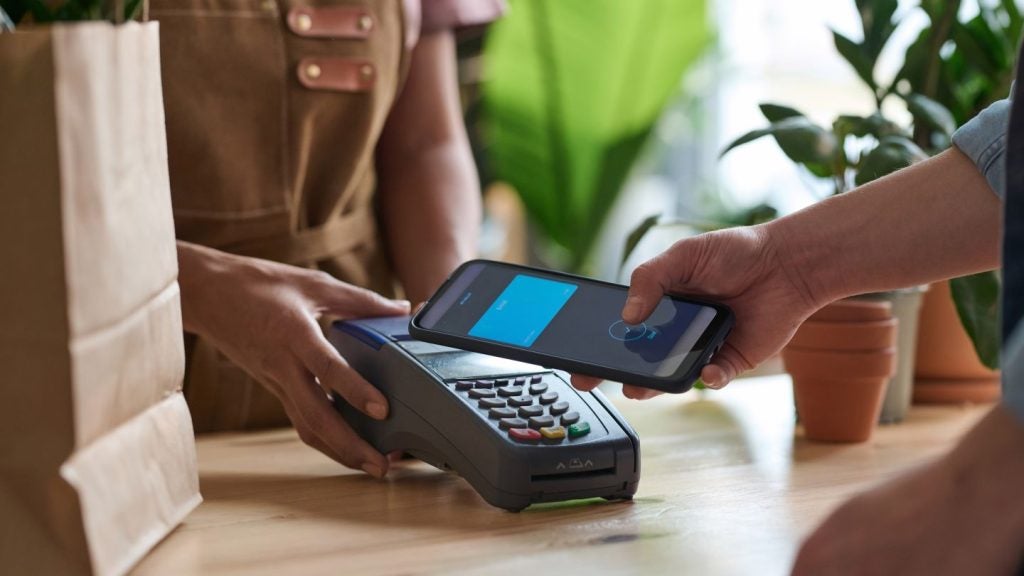Facebook is looking to play a major role in the social media gift card market. But it faces competition from third-party social media gift card providers and consumer-facing gift card mobile applications such as Wrapp and Gyft. Robin Arnfield and Toni Sekinah report.
For social media gift card providers, the goal is to be able to use the personal information supplied by Facebook users to make recommendations about gift cards for specific recipients.

Access deeper industry intelligence
Experience unmatched clarity with a single platform that combines unique data, AI, and human expertise.
"There is a good potential growth curve for issuing gift cards on Facebook with its 699m users, of whom 142m are in the US and Canada," says Bob Ruark, advisory managing director in KPMG’s Financial Services Practice.
Reuters quoted Starbucks in April 2012 as saying that it expects to generate 20% of its gift card revenues from social gifting in the near future.
Low volumes
Sales of online-only e-gift cards and physical gift cards on Facebook have so far been low. According to First Data’s "Consumer Insights into the U.S. Gift Card Market: 2012" report, only 1% of US consumers surveyed by the payments processor in 2012 had bought gift cards on a social networking site such as Facebook. Nearly two-thirds (61%) of survey respondents bought gift cards from a retailer’s physical store in 2012, while 11% bought gift cards from a retailer’s own website and a further 11% bought gift cards from an online gift card mall.

US Tariffs are shifting - will you react or anticipate?
Don’t let policy changes catch you off guard. Stay proactive with real-time data and expert analysis.
By GlobalDataMark Putman, senior vice president of prepaid products at First Data, says smartphones will play an important role in driving the social media gift card market. "A lot of consumers now access Facebook on their smartphones, so we will see more and more migration of e-gift cards to the mobile platform," he says.
Both Wrapp and Gyft provide mobile apps which let consumers download an e-gift card to their smartphone. The app produces a barcode on the smartphone screen which is scanned at a point-of-sale terminal to redeem the gift card.
Facebook Friends
"Facebook gift card providers such as Wrapp and Gyft offer retailers the possibility of targeting specific gift cards to consumers by being able to tap into Facebook users’ social networks," says Ben Jackson, a senior analyst in Mercator Advisory Group’s Prepaid Advisory Service. "If Wrapp knows who your friends are and what their favourite brands are, based on retailers they have liked on Facebook, it can suggest appropriate gift cards for their birthdays. Wrapp can also make recommendations because it knows that particular gift cards are very popular with Facebook users. The goal is to apply intelligence to selling gift cards on social networks."
Jackson warns that one problem with marketing gift cards to Facebook users’ friends lists is that most Facebook users have a mixture of genuine friends and acquaintances on their lists. "A lot of people have large numbers of Facebook friends who aren’t real friends," says Jackson. "These may be people they used to work with, or went to school with. Do they care about these people’s birthdays? When Wrapp sends you a message that it is someone’s birthday, if you don’t know them really, you won’t bother to send them a gift card."
A number of Facebook gift card providers offer group gifting. In June 2013, Amazon launched Amazon Birthday Gift, an app that enables a group of friends to collectively purchase Amazon.com e-gift cards on Facebook for a friend’s birthday. A single friend can start a gift by adding a $1, $5, $10 or $25 Amazon.com Gift Card to a birthday message, which won’t appear on the recipient’s Facebook Timeline until their birthday. Once a gift is started, other friends can join in by contributing Amazon.com gift cards.
The Facebook Card
In January 2013, Facebook launched the Facebook Card, a reusable, multi-retailer plastic gift card that stores balances from multiple retailers. Discover Financial Services acts as processor for the Facebook Card, which is currently only available in the US.
US retailers which accept the Facebook Card include Target, Sephora, Olive Garden, Jamba Juice, Staples and Walgreens. "Although the initial subset of partners is limited, we expect the number of partnerships to grow, if this first wave of partners enjoys success," First Annapolis analysts John Grund and Allison Brenner wrote in the April 2013 edition of the US consultancy’s Navigator publication.
Consumers can order the Facebook Card via Facebook Gifts, an application which enables consumers to order e-gift cards such as iTunes or to send physical gift cards in the mail to recipients. Currently, Facebook Gifts can only be used to send gifts to recipients in the US.
"One challenge with gift cards is the short-term relationship that the issuer has with the cardholder," says TJ Horan, vice president of product management at US-based cards analytics firm FICO. "But, because the Facebook Card wraps multiple merchants within itself, this may give the card a longer relationship with cardholders."
However, Jackson thinks the Facebook Card may face consumer acceptance problems. "The fact that the Facebook Card doesn’t display merchants’ names could be a problem," he says. "Facebook will have to provide consumer education about how the card works as a mini-wallet containing different retailers’ gift cards, and where it can be used. Also, checkout staff in stores that accept the Facebook Card will need to be educated as to how it works."
So far, the Facebook Gifts platform is not a significant source of revenue for Facebook. Revenues from Facebook Gifts, which was launched in September 2012, accounted for under $5 m of Facebook’s $810m revenues from payments and other fees in 2012. Advertising provided Facebook with $4.28bn worth of revenues in 2012.
In a fourth quarter 2012 earnings conference call, Facebook’s management said it expected revenues from Facebook Gifts to remain very small in 2013, First Annapolis reported in its April 2013 Navigator edition.
In the second quarter of 2013, Facebook’s revenues from payments and other fees was $214m, compared to $1.6bn from advertising. Facebook didn’t disclose its revenues from Facebook Gifts. The US and Canada provided $127m of Facebook’s revenues from payments and other fees in the second quarter of 2013.
Wrapp
Swedish start-up Wrapp launched its Facebook gift card application in November 2011.Wrapp’s business model is to enable consumers to send each other free gift cards from its partner retailers. Consumers can add value to these free gift cards if they choose.
In June 2013, Wrapp said that its platform is used as a marketing tool by over 200 retailers in the US, the UK, Sweden, Germany, Netherlands, Finland, Norway and Australia including H&M, Gap, McDonald’s and Sephora.
"We work with traditional bricks-and-mortar brands and with online-only brands," says Carl Fritjofsson, Wrapp’s co-founder and chief operating officer. "You can send someone a Wrapp gift card via email or text message or by posting it on their Facebook Timeline. The gift card goes into the recipient’s Wrapp wallet, and they have to download the Wrapp application to see the gift card. To redeem the gift card in a store, recipients have to download it to their smartphone and present the barcode on their screen for the clerk to scan. For online redemption, they have to enter the gift card’s code number onto an e-commerce page."
Fritjofsson says Wrapp is a marketing platform rather than an e-commerce system. "Wrapp enables retailers to make targeted promotions to specific consumer demographics based on data about Facebook user behaviour," he says. "For example, if Sephora wants to target 28-32 year-old women in living in New York State with its cosmetics products, it can offer them free gift cards using the Facebook behavioural data supplied by Wrapp."
Wrapp is currently testing a service called Brand Pages which will be launched in autumn 2013. "Brand Pages enables retailers to engage more closely with consumers," says Fritjofsson. "Retailers will be able to give free gift cards as rewards to consumers who are active in promoting their brands by sending gift cards to their friends."
As of July 2013, 16m Wrapp gift cards had been issued and 1.6m Wrapp gift cards had been redeemed, Fritjofssonsays. "A 10% conversion rate for gift card redemption is significantly higher than the 1-2% conversion rate you normally see with retailer coupons or vouchers," he says.
"Offering free gift cards has been a big part of Wrapp’s success," says Jackson.
"The vast majority of Wrapp’s gift cards volumes are free promotional gift cards," Fritjofsson admits. "But senders can purchase value online and add it to a free gift card, for example for a friend’s birthday."
According to Fritjofsson, 90% of Wrapp cards are sent from mobile devices. "We support Apple’s iOS smartphone platform as well as Android-based devices," he says.
In June 2013, Wrapp raised $15m in Series B funding from its Series A investors as well as from new investors such as Qualcomm Ventures, American Express, and SEB Private Equity. Wrapp said it would use the new funds for expansion, including hiring staff for its US operations in San Francisco.
Gyft
Gyft enables consumers to buy, store, send, and redeem gift cards on their smartphones. The San Francisco-based firm sells gift cards from over 200 US retailers including GAP, Burger King, Lowes, American Eagle and Nike. To encourage new users, Gyft offers a free gift card to consumers who sign up for its platform.
Users can create an account through email, Google Plus, Facebook, and Twitter and can send gift cards via email, SMS or Facebook. They can also download the app from the Apple’s App Store or go to Google Play for the Android version.
Gyft co-founder, CJ MacDonald, explains the unique selling points of his company’s offering. "USP one is you can take a plastic card and digitise it and load it on to your phone, and store it in the Gyft app. The USP two is the ability to buy and send your card. So if I wanted to send a friend a $50 GAP card or Target card and say happy birthday I could do that right from my mobile phone within seconds and they receive an email or text message," he says.
MacDonald emphasises that is a digital gift card platform and not a third party social gifting app, as it does not support group gifting. He states "We’re more interested in the actual paid gift card. Our focus is on is digitising our large market and making it more consumer-friendly, making it easier for people to manage and redeem all their gift cards. That’s really what our goal is as a business."
The company was founded in September 2012 and has received investment from Google Ventures, Founder Collective, 500 Startups, and Karlin Ventures.
In May 2013, Gyft announced that users of Android-based smartphones can purchase gift cards on its platform using bitcoins. Gyft is using US-based BitPay to process bitcoin transactions.
To date, over 200,000 plastic cards have been loaded on to the Gyft app, with a redemption rate of 70%. According to MacDdonald, Gyft currently has over $10m of gift cards on its platform.
In September Gyft launched the Gift Card Registry, allowing users to create a wish list for a special occasion such as a wedding, birthday or baby shower with up to 8 favourite retailers. Users are then given a personalized URL that can be shared via Facebook, Twitter, and Google Plus with friends and family. "If someone were to buy you something for wedding or a birthday or baby shower what ever the case you have your own personalised gift card registry which gives you flexibility," MacDonald says.
MacDonald added that with the holidays approaching Gyft will offer a number of different promotional items and work with a large number of retailers over the holiday season.
Gyft is presently only available in the United States but is looking to expand internationally in the coming year.







